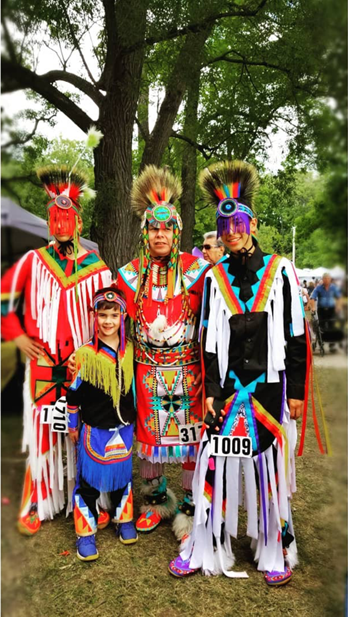Indigenous Resource Committee (7080 CIRCLE)
From John Lomax, Rotary Club of Brampton, Chair 7080 CIRCLE and Director, Central Canada Rotary HIP (Honouring Indigenous Persons www.rotaryhip.com)
The effort in District 7080 to partner with Indigenous Peoples began many years ago. This included Oakville Trafalgar Club’s Scholarship program with the University of Sudbury; Burlington North’s leadership in the 1X1 Breakfast Program, Palgrave’s partnership with Etobicoke to provide hockey equipment to remote communities and Guelph’s amazing Better Hearing and Education for Northern Youth (BHENY).
Details of these are on the District website, under Indigenous Resource Committee.
In 2015, the Truth and Reconciliation Commission (TRC)produced its report and recommendations. It captured many years of mistreatment suffered by Indigenous Peoples in Canada. These included native people being relocated to accommodate the influx of settlers. They had their traditions and ceremonies banned. Their children were taken from them in order to implant our culture and beliefs. The air, water and food supplies were poisoned by our industry. Most importantly, we made contracts with them in the form of treaties that were broken. This created a level of mistrust that will take years, even generations to overcome.
The TRC was modeled after South Africa’s TRC for Apartheid.
At that time, we organized under one Committee in Mike Gauthier’s year as District Governor. Under the leadership of Mike and subsequently Bill Proctor, we met with Indigenous Elders to ask for their guidance. The answer was a simple one. Understand our ways, build meaningful partnerships and ask where help is wanted.
This mirrors a growing movement around the world to create more meaningful relationships with those people who have lived on the land and who have been marginalised by past Imperialism.
The examples are everywhere. We feel more comfortable when we view it from a distance. The movie “Seven Years in Tibet” is one example where a successful civilization has been subjugated by a technologically superior nation. In all of these cases, the result is cultural genocide and poverty. We see it in India, the Middle East, Africa, the US, Australasia, South America, and China.
Canada has been no exception. Our forefathers were European, primarily British or French. We can thank them for advances in education, medicine and personal comforts. But we also must realise the cost to those who were here before and the cost to the environment they and we depend upon for survival.
In Rotary, we believe in Truth and Understanding, Community, Respect and building meaningful relationships. As Rotarians, we feel motivation to help overcome the need for education, potable water and the devastating effects of disease and poverty. What we are beginning to learn is that our generosity needs to be carefully placed. We do not need to force our ideas, standards and surplus goods on Indigenous people. We need to believe in their solutions and help realise their goals only when asked.
Since 2015, we have made some good progress. To name every new project that has started would take some time. We will be updating the District website to capture all of these.
Here are just a few that give hope for the future:
-
The Interact Club of Central Peel Secondary School, Brampton has initiated an exchange program between themselves and, so far, two remote Indigenous Communities. One of these was in the Northwest Territories and one was in Bella Coola, BC.
-
RC Guelph is working with Water First and other RCs to assist is training Indigenous youth in water and waste management in Northern Ontario
-
RC Burlington, with many donations, Orange T-shirt day and its focus on self awareness.
-
Continued expansion of the Scholarship program by Oakville Trafalgar.
-
Orangeville’s involvement with The Dufferin County Cultural Resource Circle which is an Indigenous cultural group, whose long-term goal is to build a Cultural Centre.
-
Palgrave joined the Indigenous Peoples Partnership Committee (IPPC)
The list is quite rich and extensive.
What does your club want to do? At CIRCLE, we will welcome any support you can give. Most important first steps are to seek to understand. We have many resources on the District Website that are worth looking at, including the TRC Committee Report.
When you get involved, you will learn about the Indigenous People of Turtle Island (the native name for North America). You will learn how strong and resilient they are. They had to be in order for their culture to survive. Most importantly, you will learn how they have integrated with this great land. You will see their sense of humour and their sense of what is true and beautiful in life.
